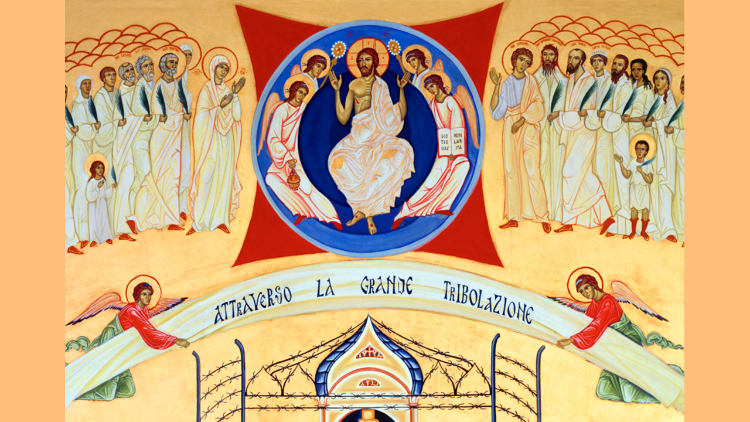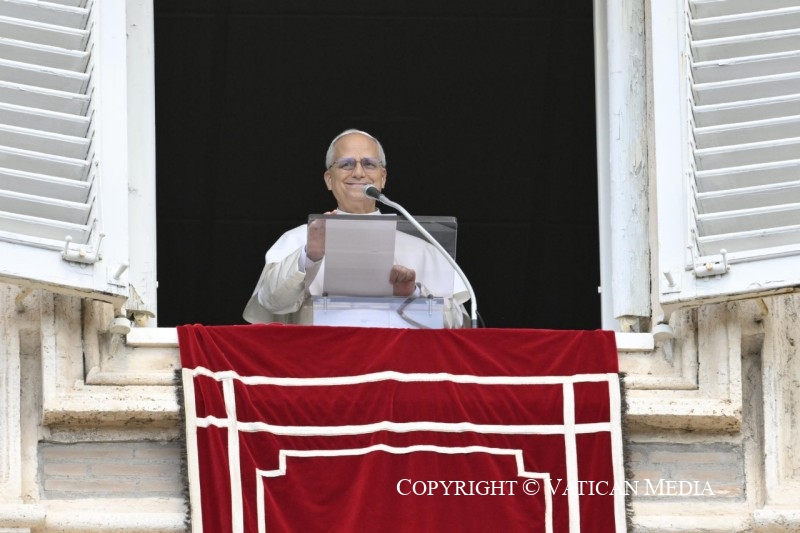
Pope Leo will join with representatives of other Churches and Ecclesial Communities on the Feast of the Exaltation of the Holy Cross for an ecumenical ceremony commemorating 21st century martyrs and witnesses of the faith. Pope Leo XIV is set to preside at a prayer service to remember the many Christians of our time who have been killed on account of their faith in Christ.
The Holy Father will be joined by representatives of other Christian Churches and ecclesial communities for an “Ecumenical Commemoration of Martyrs and Witnesses of the Faith of the Twenty-first Century,” which will take place on the Feast of the Exaltation of the Holy Cross on Sunday, 14 September, in the Papal Basilica of St Paul’s Outside the Walls.
The Commemoration is an initiative of the Dicastery for the Causes of Saints and its Commission of New Martyrs – Witnesses to the Faith, which was established in 2023 by Pope Francis “to identify the Witnesses of the Faith in this first quarter century and to continue it into the future.”
Speaking on Friday to members of the Ecumenical Joint Working Group of the Catholic Church and the World Council of Church’s, the prefect of the Dicastery for Promoting Christian Unity, Cardinal Kurt Koch, said the commemoration “will give visible expression to the conviction that the Church is already one in the blood of her martyrs.”
At a press conference on Monday presenting the Commemoration, the President of the Commission of New Martyrs, Archbishop Fabio Fabene, described the Commission’s work, saying that their research “has embraced all Christian denominations, since the vitality of baptism unites all Christians who gave their lives,” and adding, “thus is realized the ‘ecumenism of blood,’ as Saint John Paul II liked to call martyrdom.”
Preserving memory
“The Church is already united,” Abp Fabene continued, “and Pope Leo in turn hope that the blood of these martyrs will be ‘a seed of peace, reconciliation, fraternity, and love.’” The Archbishop added, “The Commission’s work of documentation is meant to ensure these stories are not lost, but preserved in memory.”
The ‘geography’ of modern martyrs
Following Archbishop Fabene’s remarks, Professor Andrea Riccardi, Vice-President of the Commission, described the “geography” of the witnesses of the faith, noting witnesses killed in the Americas by organized crime, drug traffickers, or those who exploit the environment; the martyrs of Europe, including missionaries who were killed in distant lands; the persecutions of the Middle East and northern Africa, especially Eastern Christians; and Christians at prayer in Asia, such as the victims of the Easter bombing in Sri Lanka in 2019
Professor Riccardi noted sub-Saharan Africa as the continent “where Christians die most,” pointing to victims of jihadist attacks, as well as ethnic-political violence targeting missionaries.
Unfortunately, he said, “Christians continue to die” throughout the world. “The manner of their lives and deaths changes, but they continue to die as witnesses of the Gospel – passionate for God and their brothers and sisters, authentic servants of humanity, free communicators of the faith.”
A great encouragement to unity
Finally, the Commission’s Secretary, Monsignor Marco Gnavi, explained that the commemoration of the twenty-first century witnesses of the faith would take the form of a Liturgy of the Word, presided over by Pope Leo, with 24 representatives of various Christian denominations taking part. “They represent the Christian oikoumene that desires to be permeated by this heritage,” he said.
Msgr Gnavi explained, “This liturgy will allow the Word of God to speak and broaden our memory to include that of other Christians of different confessions,” adding that it stands in continuity with the similar ecumenical celebration led by Pope St John Paul II at the Colosseum during the Great Jubilee of the year 2000.
Noting that the ceremony will include testimonies from some of the martyrs, Msgr Gnavi said, “Being side by side, while the martyrs speak of their life through their death, is a great encouragement toward unity – among ourselves and within the whole human family we long for in love.”
Christopher Wells





